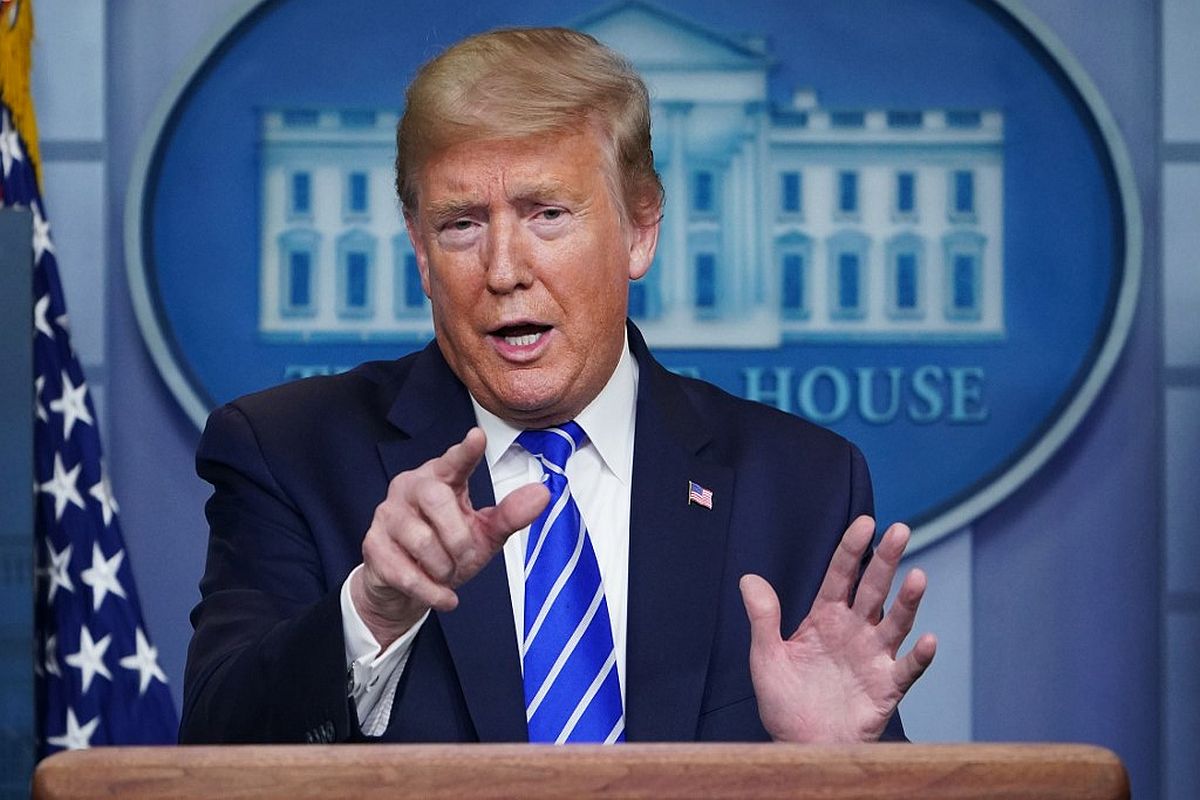India and China
“Making the dragon and elephant dance is the only right choice,” says China’s Foreign Minister Wang Yi as he extends a friendly hand to India to bolster the democratisation of global relations while stren - gthening the Global South.
With nearly 360,211 confirmed cases, Brazil now has the second-highest number of patients in the world, after the United States which has 1,643,499, according to Johns Hopkins data.

US President Donald Trump. (Photo: AFP)
After Brazil emerged as a major new hotspot in the coronavirus pandemic, President Donald Trump on Sunday suspended travel from Brazil. Non-Americans who have been in Brazil in the 14-day period prior to when they seek admittance to the US cannot come to America, said White House press secretary Kayleigh McEnany. However, trade is not affected by the new rule.
“Today’s action will help ensure foreign nationals who have been in Brazil do not become a source of additional infections in our country,” she said in a statement.
Advertisement
The United States had already banned certain travellers from China, Europe, the United Kingdom and Ireland and, some from Iran, reports The Guardian. However, US has not moved to ban travel from Russia, which has the world’s third-highest number of infections at 344,481 .
Advertisement
With nearly 360,211 confirmed cases, Brazil now has the second-highest number of patients in the world, after the United States which has 1,643,499, according to Johns Hopkins data. Brazil has registered more than 22,600 deaths. Brazilian President Jair Bolsonaro is a political ally of Trump and with his right wing politics, not politically correct way of speaking, he has been dubbed the “Tropical Trump.”
Like his American counterpart, Bolsonaro has also downplayed the health crisis, famously comparing the virus to a “little flu” and arguing that stay-at-home measures are unnecessarily hurting Latin America’s largest economy.
Bolsanao has been urging citizens to not adhere to guidelines like maintaining social distancing and staying at home to prevent COVID-19. On the contrary health minister of Brazil Nelson Teich resigned earlier this month after the government continued to pressure him to align ministry’s actions with that of Bolsonaro’s to prioritise the economy over pandemic.
Bolsonaro has repeatedly clashed with state governors, insisting that strict containment measures they are imposing are an overreaction, and damaging to the economy. Earlier this month Bolsonaro appeared outside his place where his supporters gathered in huge numbers defying lockdown measures. It was seen as an attempt to project strength in the face of a mounting political and economic crisis, which drew immediate criticism for defying continuous warning by health care workers to maintain social distancing and wearing masks.
Advertisement